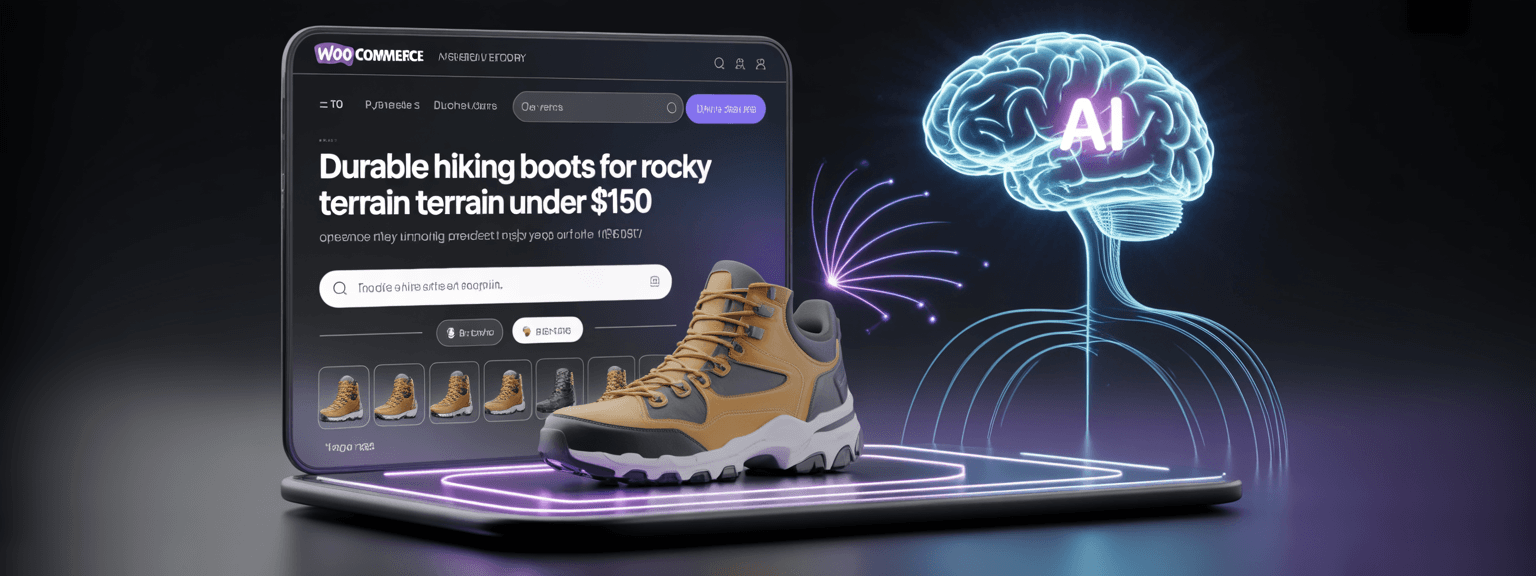
The Future of E-commerce: Semantic Search and AI in WooCommerce
Explore the future of e-commerce with semantic search and AI in WooCommerce. Understand key trends like hyper-personalization, voice search optimization, and visual search integration. Learn how AI and machine learning are powering these advancements, leading to more intuitive and intelligent product discovery for your customers.
The e-commerce landscape is in a constant state of evolution, driven by technological advancements and shifting consumer expectations. One of the most impactful changes currently underway is the integration of artificial intelligence, particularly in how customers search for and discover products. For online stores built on popular platforms, leveraging semantic search for WooCommerce is rapidly moving from a competitive advantage to a foundational element for future success. It signals a move towards more intuitive, human-like interactions between shoppers and digital storefronts.
Traditional search methods, which heavily rely on exact keyword matching, are increasingly showing their limitations in a world where users expect search engines to understand intent, context, and natural language. The future lies in search systems that think, learn, and adapt, much like a knowledgeable human sales assistant.
Key Trends Shaping Semantic Search in E-commerce
Several interconnected trends are pushing semantic search and AI to the forefront of WooCommerce development:
- Hyper-Personalization: Consumers expect shopping experiences tailored to their individual preferences, purchase history, and Browse behavior. Semantic search, when combined with AI-driven personalization engines, can deliver highly relevant results that resonate with each unique user. Imagine a search for 'running shoes' that automatically prioritizes brands or features a customer has shown interest in previously.
- Voice Search Optimization: With the rise of smart speakers and voice assistants, an increasing number of searches are being conducted verbally. Voice queries are typically more conversational and longer than typed queries. Semantic search, with its strength in Natural Language Processing (NLP), is inherently better equipped to understand and accurately respond to these natural language voice commands.
- Visual Search Integration: As discussed previously, the ability to search using an image ('shop the look' functionality) is a powerful emerging trend. The AI that powers visual recognition is closely related to the AI that enables advanced semantic understanding of text, both working to interpret user input in a more holistic way.
- Predictive Search and Recommendation Engines: Semantic understanding allows AI to not only respond to explicit queries but also to proactively suggest products or categories a user might be interested in, even before they type anything. This can be based on trending items, items frequently bought together, or products related to their current search context.
The Role of AI and Machine Learning
Underpinning the advancements in semantic search for WooCommerce are sophisticated AI algorithms and machine learning (ML) models. These systems continuously learn and improve from vast amounts of data:
- Learning from User Interactions: Every search query, click, and purchase provides data points that help the AI refine its understanding of product relationships, user intent, and the effectiveness of certain results for specific queries.
- Automated Tagging and Attribute Enrichment: AI can assist in automatically analyzing product descriptions and images to extract key attributes and generate relevant tags, making the product catalog richer and more easily searchable by semantic engines.
- Enhanced Data Analysis for Business Insights: The data generated by an advanced semantic search system can provide valuable insights into what customers are looking for, unmet needs, trending terms, and common points of frustration in the search process. This information can inform inventory decisions, marketing strategies, and site improvements.
For WooCommerce store owners, embracing the future means investing in technologies that create smarter, more intuitive, and more personalized shopping experiences. Semantic search for WooCommerce, powered by AI, is a cornerstone of this future, promising to transform product discovery into a seamless and intelligent conversation that delights customers and drives growth. It’s about building a search experience that is not just reactive, but proactive and truly understanding.